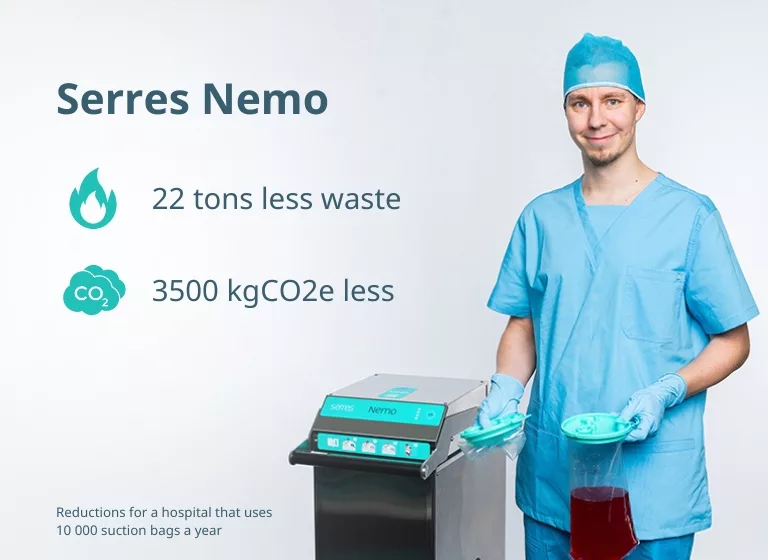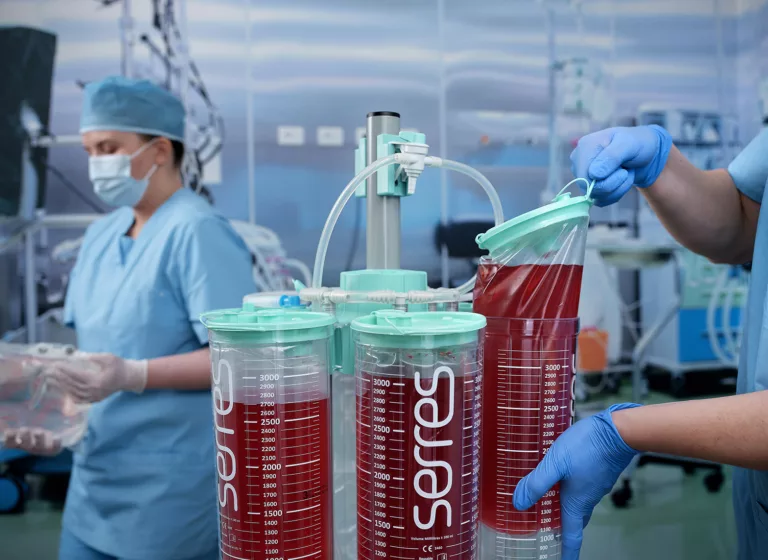Serres Sustainability Report 2022: Contributing to More Sustainable Healthcare
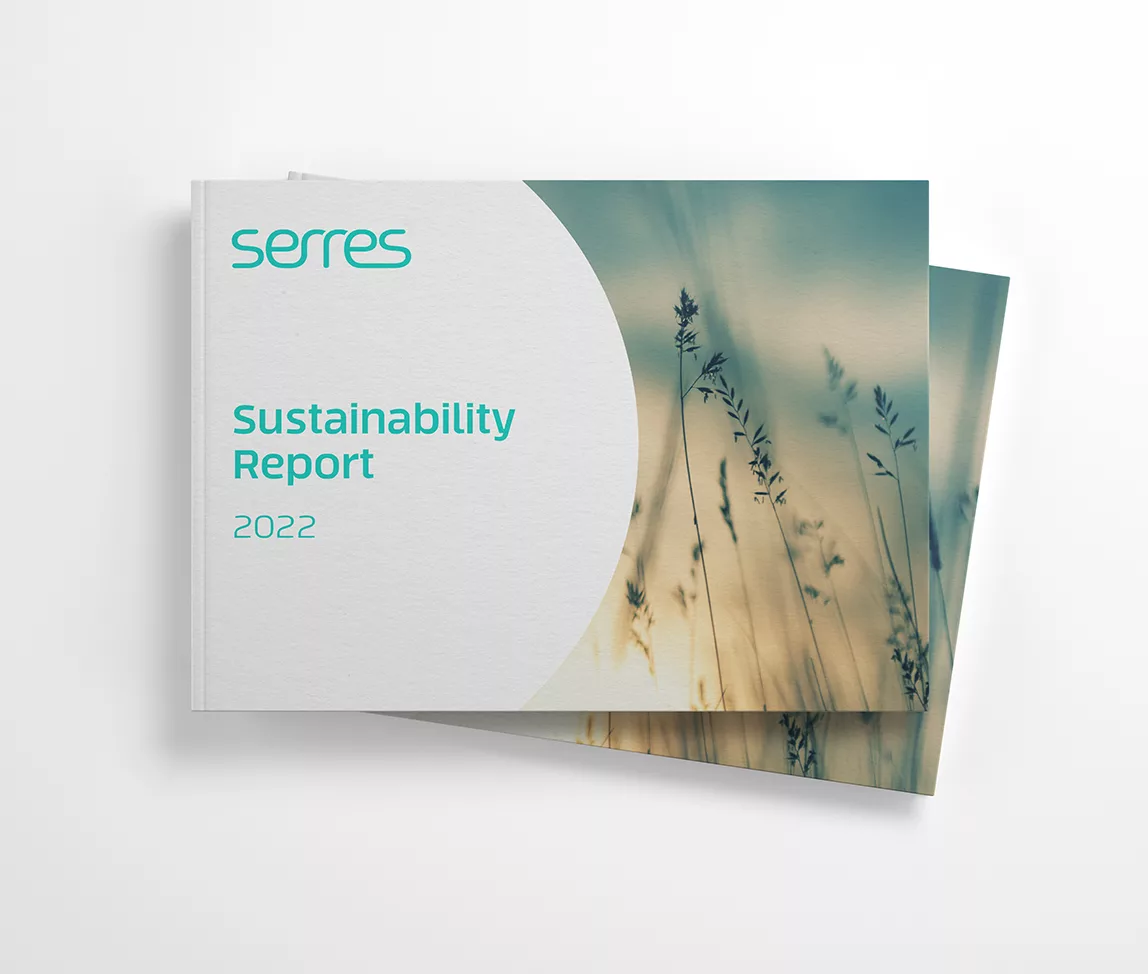
As healthcare providers around the world strengthen their sustainability efforts and look for more environmentally friendly solutions, all stakeholders must be prepared to meet the needs of sustainable healthcare.
At Serres, we contribute to these efforts by constantly working towards minimising our own environmental impact and increasing the transparency of our operations. Our annual sustainability report plays a key role in disclosing our sustainability performance and making this information easily accessible to all our stakeholders.
Our 2022 sustainability report provides an overview of material sustainability topics and outlines our sustainability focus areas and priorities. We also introduce the carbon footprint calculations we conducted on one of our key products.
2022 highlights
Ensuring customer satisfaction was identified as one of our key objectives, and we use our delivery assurance percentage as our performance metric to track it. In 2022, we reached a customer satisfaction rate of 94%. With our supplier delivery assurance at 97%, we are happy to state that we continue being a reliable partner.
In terms of our environmental impact, we made some solid progress. Our overall recycling rate in 2022 was 79%, which is a clear improvement from 68% in 2021. We have set ambitious individual recycling rate targets for our Finnish production facilities: at our Kauhajoki site, we aim for 81%, whereas at our Saarijärvi site our target is 78%.
When it comes to the share of renewable energy in our overall energy usage, we still have some work to do. Our goal is to be above the European target (42.92%), and currently we are at 36%. However, we are happy to say that we have made significant progress from last year’s 29.1%.

Sustainability as a business driver
Our recently launched strategy puts great emphasis on sustainability, with ‘Sustainability as a business driver’ as one of our key strategic initiatives. For us, sustainability and profitability go hand in hand – we believe that we can drive profitable growth by taking the lead in sustainability in our product segment.
We promote sustainable development in all our operations, but we believe that the most impactful approach for us is contributing towards sustainable healthcare through our products.
Serres Suction bag – sustainable by design
Our main product is a single use plastic disposable suction bag, which is normally incinerated with its content after use. The procedure has a noticeable impact on the environment. This is something we have recognized early on, as already 20 years ago we began our journey as being a forerunner in material efficiency.
Over the years we have successfully reduced the amount of material used in the suction bag without compromising product quality. Our suction bags are extremely light and they do not contain any PVC, latex or DEPH. We are continuously investigating new raw materials, both recycled and recyclable, to continue being the forerunner in our field. Today we are a forerunner in material efficiency. The Serres Suction bag is extremely light and up to 4 times more bags can be packed into a box than comparable products. The bag design has positive impacts on logistics, storing and to disposal of the product.
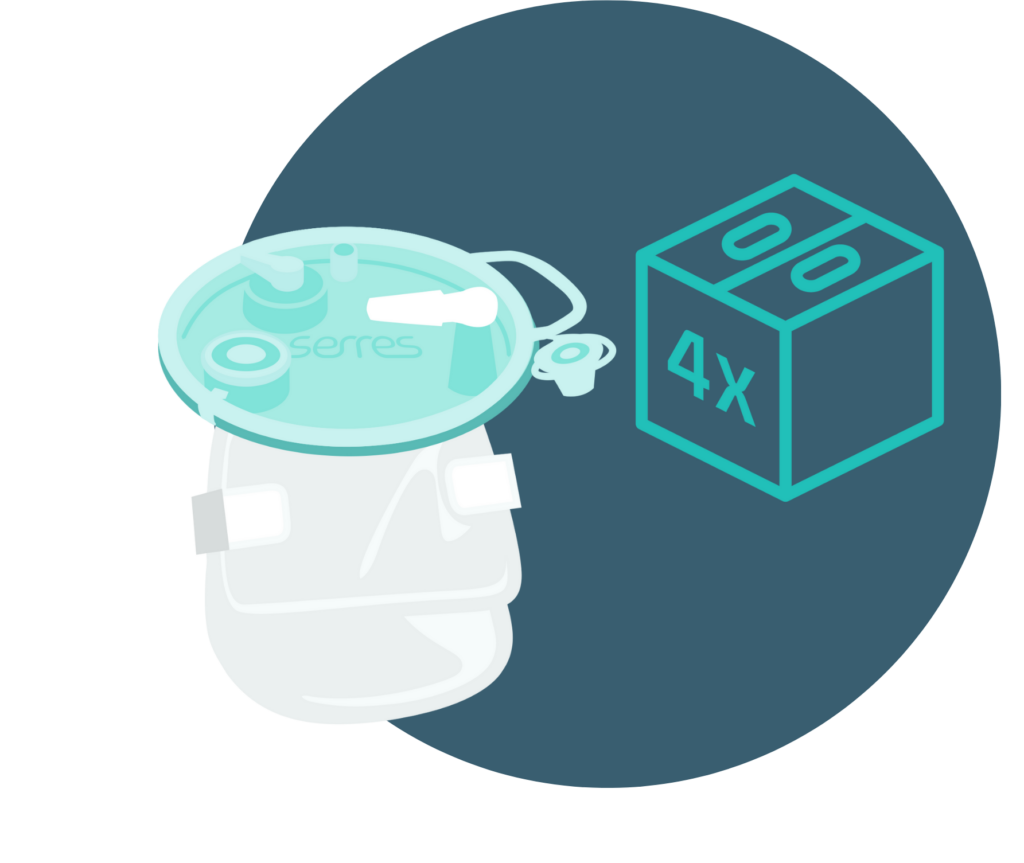
Focusing on patient and healthcare professional safety
Our foremost priority is patient and healthcare professionals’ safety. As the liquids collected by our suction bags are considered hazardous waste, the durability of our suction bag is essential. We work with the highest quality criteria to guarantee that all our products have the necessary certifications and documentation and are safe for our customers and patients. As a result, our products have an unmatched quality: for every million successes, only one failure.
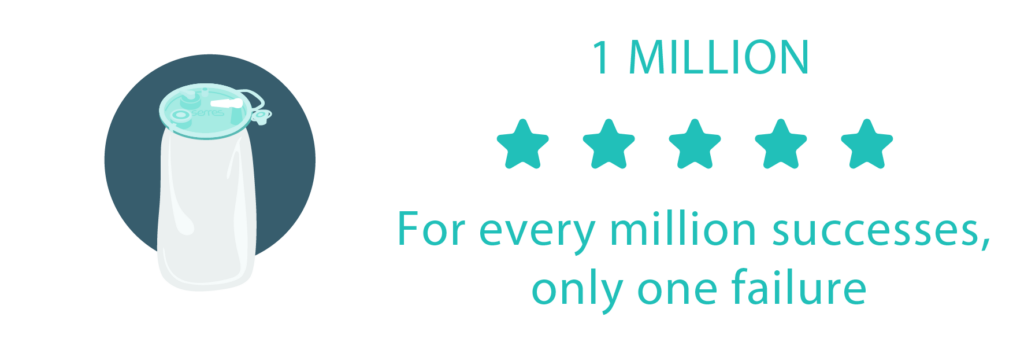
To ensure safe handling of the collected waste, we have built the Serres Nemo, a fluid disposal device, that secures the emptying of the Serres Suction bag in a hygienic manner while significantly reducing the amount of waste generated in the process.
Helping hospitals reach their sustainability targets
To fully understand the environmental impact of our products and find new ways to reduce it, we have conducted carbon footprint calculations on our 2l suction bag.
To calculate the carbon footprint of a 2l suction bag we applied a comprehensive cradle-to-grave* methodology to evaluate the suction bag’s life cycle. The calculation was performed with reference to the GHG protocol and the ISO 14044:2006 standards, but only taking CO₂e emissions into account.
The results:
The carbon footprint of the emptied 2l Serres Suction bag is 0.20 kg CO₂e (Carbon Dioxide Equivalent**) and the carbon footprint of the full 2l Serres Suction bag is 0.55kg CO₂e per bag.
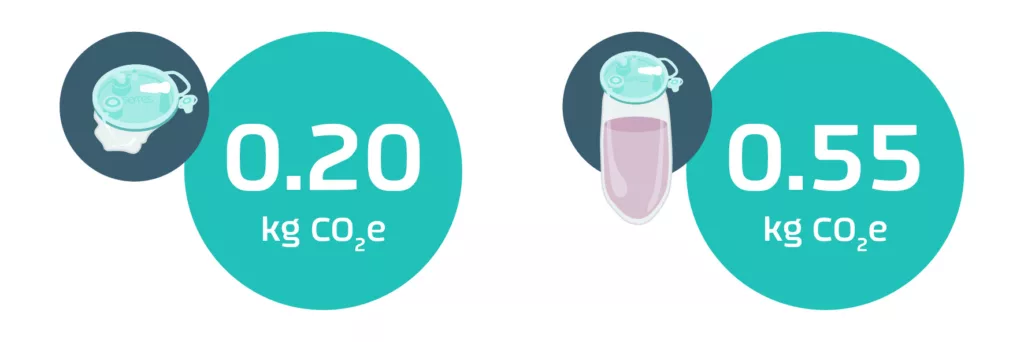
We also found out that by incinerating only emptied suction bags, hospitals can cut their CO₂e footprint from waste management by up to 97% (from 3608,9kg CO₂e to 91,8kg CO₂e). We have built an emptying device Serres Nemo to help cutting both costs and CO₂ emissions from hospital waste disposal.
Building a sustainability framework
Another key sustainability action of 2022 at Serres was a materiality assessment to define our most relevant sustainability topics and focus areas. The assessment enabled us to identify our most significant environmental, social, and governance related impacts in our overall value chain, which we have then prioritised as our sustainability focus areas.
These focus areas, Clients/Products, Planet, People and Profit, form a framework which enables long-term commitment and value-driven sustainability in our overall value chain.
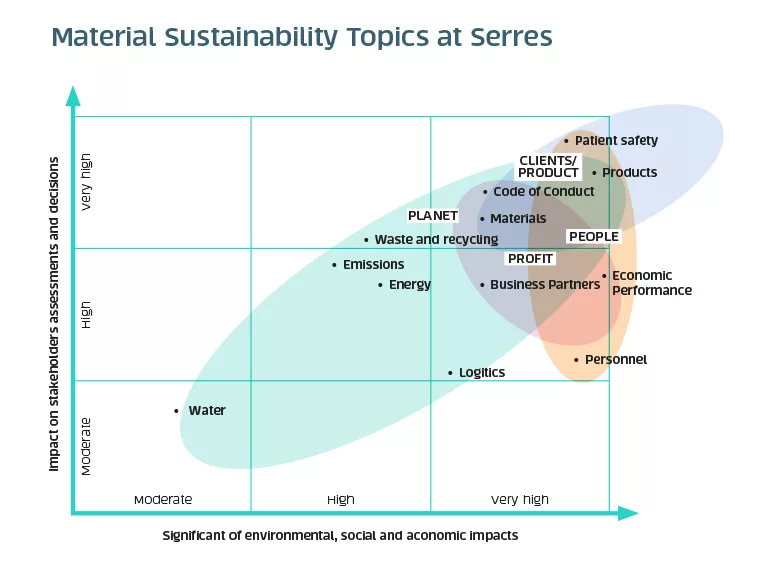
Our 2022 sustainability report functions as a good baseline for further development of our sustainability disclosure practices, and it has already increased our preparedness for the forthcoming EU Corporate Sustainability Reporting Directive. Our 2022 materiality assessment provided us with a sustainability framework, and in 2023, we will strengthen our efforts by carrying out a double materiality assessment as part of our 2023 reporting.
* The footprint calculation has been done from the Serres manufacturing site Kauhajoki to Rotterdam Hospital Netherlands. In the case of Rotterdam, outbound logistics is within Europe, and including trucks and trucks loaded onto a ship. In the incineration phase in the Rotterdam case, plastic boxes are used to transport full bags to incineration, and they are also incinerated with the bags. From the incineration phase, 12% consists from incinerating the full suction bag.
** A CO₂ equivalent (CO₂e) is a unit of measurement that is used to standardise the climate effects of various greenhouse gases.

